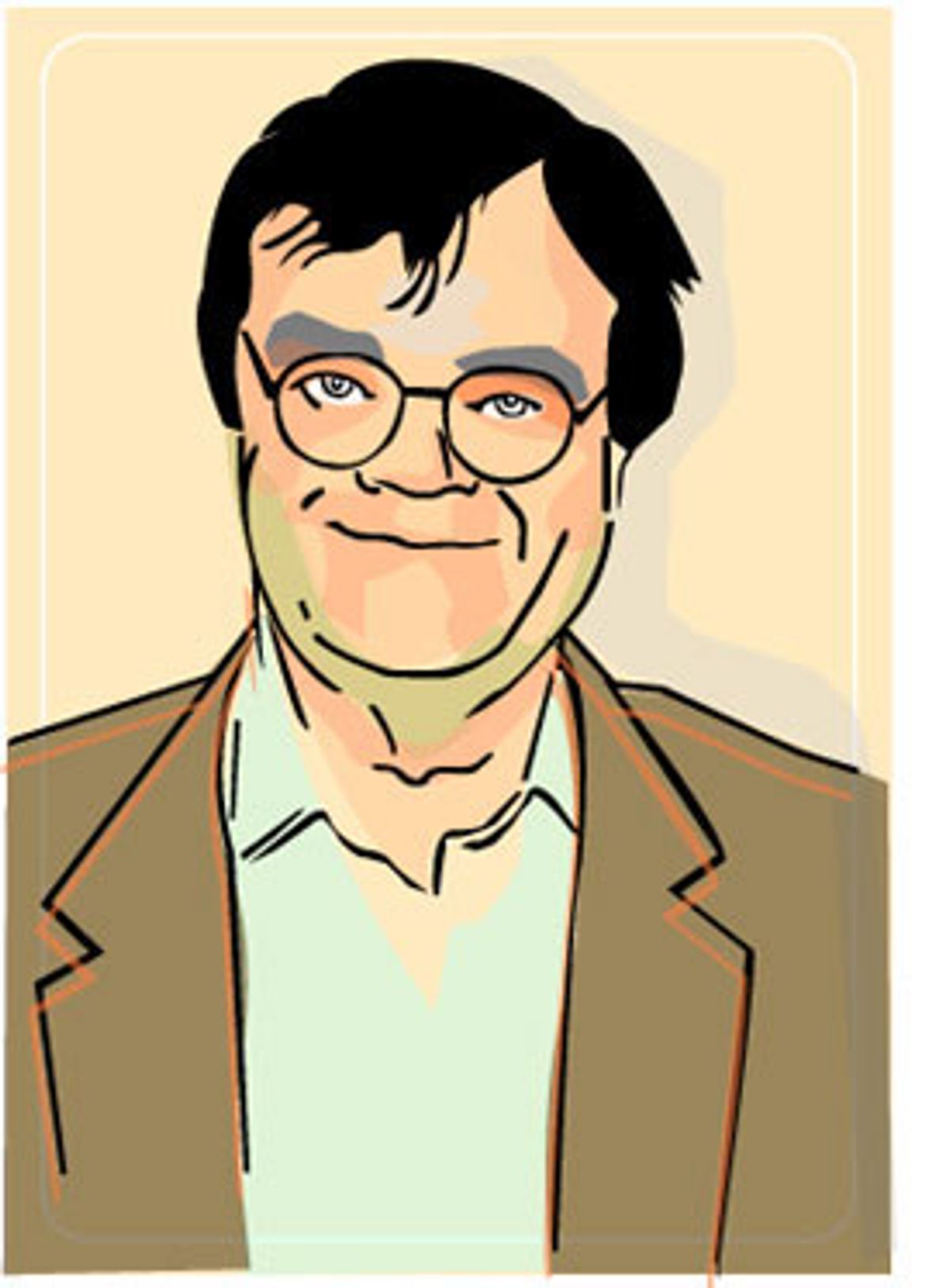I am aboard a cruise ship gliding slowly between snow-capped mountains that remind me of the art my parents hung on our living room wall back in Minnesota in the '50s. It was a large translucent picture of snow-capped mountains, lit by an electric bulb behind it, and when guests came we made sure to turn it on. We were all quite proud of it, and I guess it was considered inspirational, in the sense of "How can you look at this and say there is no God?" It occupied a place of prominence over the couch. Of course, to base one's faith on beautiful scenery is to leave oneself open to grave doubt if you should see Texas. Texas would make any man an atheist, unless he understood that God means to challenge us.
A cruise ship is the lazy man's way to see the wilderness. We are in the waters of the humpback and orca whales, in the habitat of brown bears and harbor seals, eagles soaring overhead, but we have hot showers and room service. I can stand on deck and breathe the chill salt air and gaze at a river of descending ice, pieces the size of a high-rise crashing into the sea, and I can also send e-mail and get the New York Times crossword fresh daily. And -- just to illustrate the level of degradation -- one can lie abed and watch the glaciers on TV. One could watch them and pick up the phone and order eggs Benedict. I don't do this myself, but one could.
A cruise ship is a floating town of lazing people, and Alaska is a popular summer destination. While Phoenix and Houston bake, and even Minnesota swelters, summer in Alaska is idyllic and springlike. And luxury feels so luxurious in the wilderness. What is obscene to the hairy-legged hiker on the mountain path -- the sight of a luxury liner in the bay below -- is perversely pleasant to the folks aboard. The early settlers had to work desperately hard for the basic necessities, and that makes the filet mignon and the 1994 Barolo so extraordinary, and the comfy mattress, and the chaise on the balcony.
You lie there and imagine Capt. Cook sailing this way in 1778 with his pockmarked, scurvy-ridden crew, and you tuck into your fruit compote and feel like a tycoon. John Muir canoed the Inside Passage, and here you are, sleeping your way north. Not bad. Every year a million people visit Alaska just this way, and so in August the voters of the state will decide whether to subject the cruise ships to closer regulation and impose a $50 admission fee for each passenger.
I'm in favor of the $50 head tax. I'm a Democrat after all, and taxes do not horrify us as they do others. Certain things government must do, such as monitor cruise ships that might empty tanks full of sewage into the fjords and sail away, leaving soapsuds and toilet paper and candy wrappers in their wake, and the ships' owners need a strong negative incentive not to do that. Government is good at providing negative incentives. The cruise tycoons don't live in Juneau or Ketchikan. The companies are international, as pirates are, and you must shout to get their attention.
A seven-day cruise has its lulls and its peaks. When we left Seattle, hundreds of passengers gathered on the after deck and sang "America the Beautiful" and "The Star-Spangled Banner" as the downtown towers slipped away. A rousing moment. On Sunday morning, a young Lutheran minister preached on the subject of God's grace, which frees us from cravenness and the need to pander and curry favor, as we congregants looked out the windows at mountains slipping past, watching for humpbacks. In Juneau, some passengers went whale watching and saw a pod of 16 whales and another pod of 12 and came back to the ship ecstatic, awestruck.
And now here is the ship dead in the water, alongside a massive, 300-foot-high, craggy fissured wall of ice a mile wide, the ice groaning, cracking, giving off low booms, and we passengers, in sunglasses, purple and blue and orange windbreakers, cameras around our necks, stand in a religious silence and watch time itself, a thousand years, moving slowly down the valley toward us. It's the wall of my parents' living room, and we are on a toy boat sailing along the carpet.
- - - - - - - - - - - - -
(Garrison Keillor's "A Prairie Home Companion" can be heard Saturday nights on public radio stations across the country.)
(c) 2006 by Garrison Keillor. All rights reserved. Distributed by Tribune Media Services, INC.



Shares